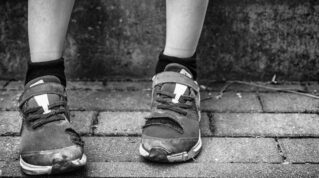School leaders have urged Labour to quickly alleviate child poverty after new figures revealed a record number of youngsters were living in temporary accommodation.
The number of children in temporary housing with their families in England soared to 151,630 as of the end of March, new figures show.
This is the highest figure since records began in 2004 and Pepe Di’Iasio, general secretary of the ASCL school leaders’ union, slammed the rise as “a source of national shame”.
He warned that living in temporary accommodation is likely to have an impact on the mental health and wellbeing of the children affected, and their educational outcomes.
Overall, 117,450 households were in temporary accommodation as of the end of March.
Among these, there were 74,530 households with children, up 4.6 per cent from the previous quarter — and up 14.7 per cent jump from March 2023.
Labour’s manifesto pledged an “ambitious strategy to reduce child poverty” and Bridget Phillipson, education secretary, is jointly lead a ministerial taskforce develop this plan.
“We welcome the new government’s creation of a child poverty unit and its focus on housebuilding – but there does need to be tangible action as soon as possible emanating from these initiatives because the crisis is here and now,” Di’Iasio said.
‘The fact this is getting worse is sickening’
Temporary accommodation is secured by councils under their statutory homelessness functions. It can include bed and breakfasts, hostels or local authority housing.
The number of households with children living in bed and breakfast accommodation jumped by 44.2 per cent to 5,550 households while 3,310 were living in hostels.
Daniel Kebede, general secretary of the National Education Union, said it is “a disgrace that there are children in this country who have not got access to a proper home”.
“How can any of these hundreds of thousands of children without a home be expected to arrive ready for school or complete their homework?
“The fact that today’s data show this is getting worse is sickening.”

A collapse in support service amid funding cuts from 2010 onwards saw many schools scrambling to plug the gaps, a Schools Week investigation previously exposed.
A poll earlier this year found that more than a third of primary school pupils have a classmate who sometimes does not have enough food to eat, and over a quarter report sharing food with friends several times a month.
In June, Dan Moynihan, CEO of the Harris Federation of 54-academies, told Schools Week the trust has a “growing number of homeless families in our schools”.
He said the situation means “we’ve got people families in bed and breakfasts where they’re sharing toilets with unknown adults who are a safeguarding risk”.
More than half of the pupils are at Harris Primary Academy in Peckham in south London are homeless, he added.
Schools ‘do their best’
Paul Whiteman, general secretary of school leaders’ union NAHT, said: “School leaders and teachers see the damaging effects of poverty upon pupils day in, day out, and sadly this has only increased in recent years.”
Homelessness and insecure housing can affect children’s health, wellbeing, sleep and ability to concentrate at school, he added.
“Schools do their very best to support children and families, but they are not equipped to address the often deep-rooted causes of poverty.”
Whiteman claimed the last government “failed to do anything like enough to acknowledge and tackle the worrying levels of child poverty”.
Labour government must now “deliver tangible results which lift families out of poverty and lay the foundations for children to flourish at school”, he added.
Jane Peckham, NASUWT deputy general secretary said homelessness has a “devastating and lasting impact on children’s lives” and called for “swift action” from government.
“Teachers on the front line in our schools are having to pick up the pieces of more than a decade of deregulation and a lack of investment in high quality and affordable housing.
“The increase in numbers of pupils living in temporary accommodation is an indictment of the years of failure by the Conservative government.”
Labour has pledged to introduce a “children’s wellbeing bill” in the next year, including a requirement for free breakfast clubs in every primary school.
But Kebede reiterated calls for new ministers to go further and scrap the so-called two-child benefit cap, arguing this would help alleviate child poverty.
The George Osborne-era policy means low-income families cannot claim Universal Credit or Child Tax Credit for their third or subsequent children born after April 2017.
The Institute for Fiscal Studies estimates 250,000 extra children will be affected by this next year.
“It would be a significant step for the Chancellor to at last heed the enormous opposition and scrap it,” Kebede added.
“At a stroke, this would lift 300,000 children out of poverty and hundreds of thousands more would be in less deep poverty.”
The government and the Conservative party have both been approached for comment.















Surely all factors impact on the well being of all our children.
Shelter
Food
Relationships
Security
Education
Opportunities
Now we need to think of a coordinated approach to Maslov’s hierarchy of needs.
Schools cannot do this on their own.
Government policy will now aim to do the very best for our young people.
All parents want to be able to do the best for their children and we should support them towards this end.
Early identification of need, followed by a meaningful support plan.
Children’s centres, youth centres.
Excellent post 16 provision all count towards success for every young person.
We can help our children to keep on the right track and address issues that concern them as young people.
Basic needs must be met and opportunities extended for everyone.
All children should have the chance to learn from and about each other so prejudice is confronted and empathy nurtured.
This is the sign of a civil society.
Let’s talk about human values and the things that bind us together.